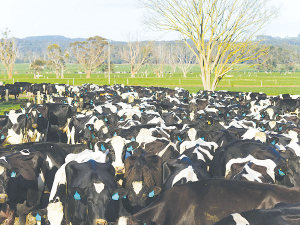Dairy farmers in the Australian state of Victoria had a record profitable 2022-23 season, thanks to high milk prices and carefully managed high costs.
Dairy Farm Monitor Project - a partnership between Dairy Australia and Agriculture Victoria - includes collection and analysis of financial and production data from dryland and irrigated dairy farms in southwestern Victoria, Gippsland and northern Victoria.
It tracks 80 dairy farm businesses, and participants represent a distribution of farm size, feeding systems and herd sizes.
This year's findings revealed that milk price increased by 33% to A$9.77/kgMS - the highest on record in the survey's 17 years - helping to offset rising feed costs and overheads including labour.
Farmers use the reports to inform their business decisions, assess their business performance over time, implement substantial farm changes and assist in financial management.
Dairy Australia general manager research & innovation, Greg Jarman, says that some of these decisions can have a lasting impact on the profitability and sustainability of their farm.
"The Dairy Farm Monitor Project is a valuable source of independent physical and financial data around a wide range of on farm practices, equipping farmers with essential insights to inform their decision making," says Jarman.
"This information also ensures that farm consultants and industry stakeholders can use reliable, independent and useful information and resources to provide good advice to farmers."
Valued at A$2.5 billion, Victorian dairy leads the nation's exports. The gross value of milk produced in Victoria is worth A$2.86 billion and the sector supports almost 13,000 jobs, almost half of which are in regional Victoria. There were approximately 2,773 dairy farm businesses in Victoria that produced 5.14 billion litres or 63% of Australia's national milk production in 2022-23.
"It is pleasing to see Victorian dairy farmers come out on top following a year of higher business inputs, wet conditions and flooding," Agriculture Victoria Sector Development and Services Executive Director, Dougal Purcell says.
"We thank the Dairy Farm Monitor project participants for their dedicated support to this initiative, providing such valuable information to industry and governent."


















